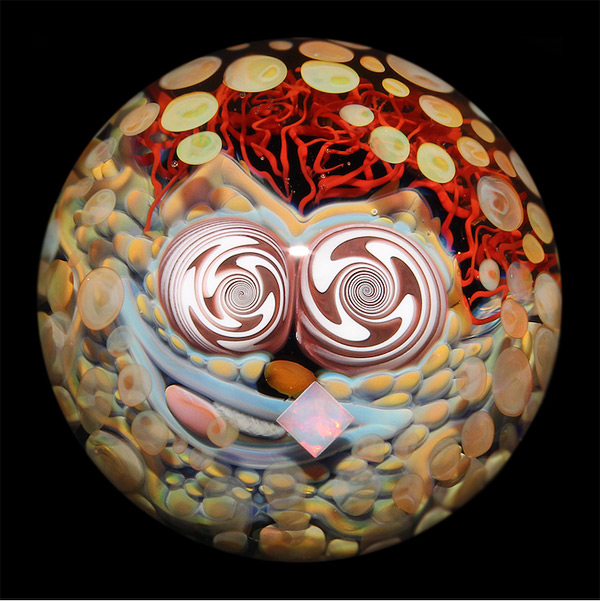
Every Moment is a Loss and Every Moment is a Gain: More on Ontic-Shock, Psychoanalysis & Perpetual Perishing-Birthing
“One pulse of enjoyment follows another, and, as their number grows, all the pulses form the serial society we call the soul. It is like a growing pile of coins. Each pulse takes in all the frozen data from its predecessors and adds novel feelings of its own. The occasion does not passively copy the past: in the act of self-creation it refreshes the design of the past, thereby inventing its novel present, and preparing for its possible futures. Whitehead calls these takeovers ‘prehensions’. The verb ‘to prehend’ means to engulf, perceive and transform.
So the soul of a human, or of an electron, or of a bacillus, is a sequence of prehensions, or takeovers, each of which prehends all its predecessors. As it grows in time the sequence defines the society called the soul.”” –Richard Lubbock
I was very excited to listen to another Freestyle Christianity interview recently. This one, coincidentally, was again all about Peter Rollins’ blend of Lacanian psychoanalysis and theology. I confess that I may be misunderstanding a lot of it, but when it comes to this idea of “lack” and the notion that we undergo a unique “ontic shock” type of event as infants, I balk. Being so influenced by things like process-relational philosophy, eco-theology, integral philosophy, religious naturalism, perennialism, esotericism, non-duel mysticism, etc., I have a really hard time getting on board with an approach that purports human “lack” or “deficiency” is ontological, or baked into the nature or reality/being. I would be ok with saying something like loss is built in (however we would also, simultaneously, be required to say that gain is built in as well). But “lack?” No.
Leaving alone the human-centeredness of psychoanalysis and forms of existentialism (which have too much individualism and rationalism running in the background for my taste), any which way one tries to slice it this language of “lack” has a negative valence. On top of that it simply does not make sense to me. For starters, ontologically speaking, for me as a process panexperientialist, humans are better understood to be inter-related, dynamic, patterned, processual configurations of actual occasions of experience. In other words, to quote process psychologist Jon Mills, “everything that exists is comprised of active units of experiential complexity, from the robust psychological processes of human cognition, to the elementary particles inherent in a stone.” The human mind is not a rare exception to nature, but just another example OF nature. For Whitehead, human consciousness is merely a highly developed form of experience, and this experience goes all the way down, it permeates nature and doesn’t just arise or pop-out of lifeless matter at some point in time.
Now, as far as temporality goes, I really do think Whitehead offers a far more comprehensive understanding here. Richard Lubbock writes that “the cosmos is a network of ‘actual occasions’, which are pulses of feeling and acts of choice. Every factor of experience must call on all the others in order to express itself. Each occasion is a process which perishes as soon as it has asserted itself. Once dead, it forms the base, and sets the limits, for the deeds of its successors.” So, again, this perpetual perishing-birthing is not unique to humans, this process is…just the process. Additionally, one need not understand these processes as being good or bad in any way, and we might also do well to recognize that these processes have been happening forever, i.e. it doesn’t start in early childhood. Psychologist Mark Gregory Karris talks about this the way Whitehead would:
“While the child in the mirror stage might experience a trauma and larger loss then ever before, there were losses experienced even in the womb due to the nature [of the Universe]…In other words, because we are temporal, energetic beings, located in a spacetime continuum, we are always being pushed forward towards future potentialities; therefore, every moment feels like a loss. Time never stands still. Moments of connection, beauty and joy never last because time pushes us forward. Paradoxically, every moment is a loss and every moment is a gain.”
Getting back to this ontic shock thing then, and the formation of the “I” (and keeping in mind the process-relational insistence that subject and object have always existed together), I like when Michael Weber emphasizes the process of development, writing that “our conscious experience is embodied and embedded, it emerges progressively as the process of individuation takes place (ontogenesis), together with socialization (koinogenesis) and after a long biological evolution (phylogensiss).” Referencing D.W. Wainscot’s work, Karris puts it this way: “one does not become a self over night. It is not an event but more of a process…” Although I get what Rollins et al. are trying to say regarding the seriousness of traumas, pains and hurts, and how they manifest in our lives, and concede that individuation can certainly be a difficult series of stages for children to navigate, I really do agree with Karris when he writes that “there is not a “one-time shock event” of the birth of the ego, and it certainly does not have to be filled with trauma or terror.”
…
Tangentially related, a great interview with Jon Mills here where he discusses his critique of relational psychoanalysis.
…
Image above: “Acid Eaters” Handmade Psychedelic Marbles by Artist Mike Gong

0 Comments